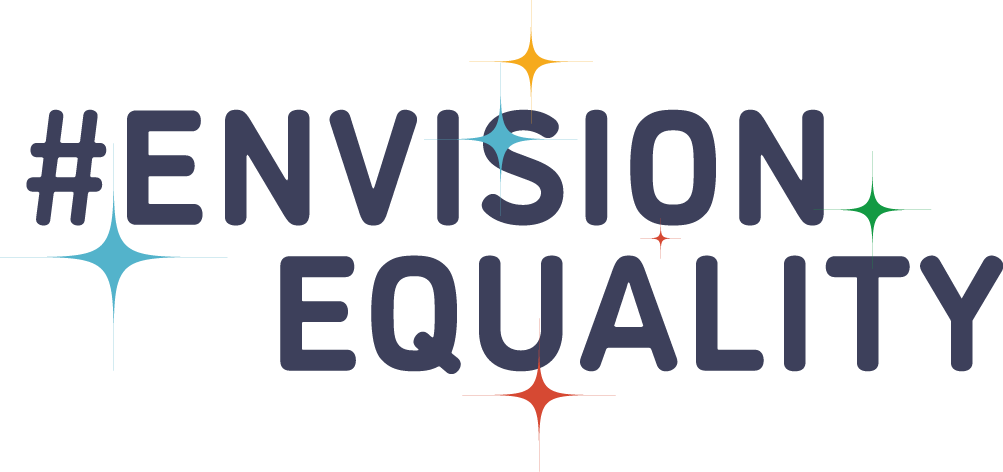
Kelly Davis
Chief of Birth Equity Innovation at National Birth Equity Collaborative
What would a gender equal world look like? How will we know when we’ve achieved it?
I envision a world where Black women and gender expansive folks all over the world have sexual and reproductive health, pleasure and fulfillment. The first step towards fulfillment is safety, which, unfortunately many of us do not experience.For example, the Supreme Court’s refusal to stop Texas’s S.B. 8, an unconstitutional six-week abortion ban, has the potential to devastate poor, Black, Indigenous, immigrant and queer communities already besieged by the COVID-19 pandemic. Black women across the U.S. (and in Europe and Africa) already account for a disproportionate amount of maternal deaths. In the richest country in the world, Black women remain three times as likely to experience a maternal death than their white counterparts; most of these deaths are preventable. Ending the Black maternal health crisis will require safety across every facet society. My heart is heavy this week for my hometown, New York City, as we mourn Shanice Young, a young Black woman who was fatally wounded at her own baby shower in front of her two small children. This, too, is maternal mortality. And we will not have a more gender just world until all Black women and queer folks can be safe wherever they go.
What do you think it will take to achieve?
Ensuring safety for Black women and pregnant people will require a steadfast dismantling of structural racism, gender oppression and transphobia in all facets of society, not just in healthcare. Everything affects sexual and reproductive health! I spend a lot of my time advocating for strategies to combat the climate crisis and environmental degradation in service of better birth outcomes. Adverse birth outcomes can be linked to lead-laden drinking water, polluted air and heat exposure, all disproportionately affecting Black birthing people. However, Black women are often left out of climate research and advocacy efforts. Mitigating the effects of climate change for Black birthing people necessitates requiring all government-sponsored climate change research proposals include investments in citizen science and community-centered partnerships and mandating FEMA and the HHS Office of the Assistant Secretary for Preparedness and Response create targeted strategies for pregnant and postpartum families within emergency preparedness and weather-related disaster plans. We also need long-term labor protections, eviction moratoriums and utility subsidies as Black women often have less financial resources to mitigate or flee climate emergencies.
Given the current status of the world, what gives you hope and inspiration that we can achieve equality?
The centuries-long transition of Black feminist organizing both exasperates and inspires me daily. It saddens me because mobilizing against injustice while experiencing injustice creates an unimaginable burden. Black women are always experiencing violence inflicted by systems, yet we still show up to shift policies at the local, state, federal and international levels. That dedication doesn’t detract from our full humanity as joyful, agentic humans nor diminish how we show up for our families and communities. That’s magical and miraculous.
What do you see as the three biggest barriers to achieving equality?
The three biggest challenges to achieving gender equality are: structural racism, gender oppression and poverty. Of course, they are inextricably linked. Often, we think about downstream solutions to gender equality without addressing the foundational wounds that continually manifest. The challenge is that these forces are complex and dynamic. The good news; however, is that they are totally manmade. And something that has been done by mankind can also be undone.
If we’re sitting in the future celebrating our success at achieving equality, what have we achieved, who is celebrating with us and how are we experiencing the world differently?
Imagine how it would feel to walk through the streets without threats of harassment or violence, work for a living wage sans discrimination, and receive affirming healthcare. If people with the capacity for pregnancy could access fertility support, contraception, termination, paid parental leave and respectful gynecological and obstetric care without financial and political limitations, sexual and reproductive health, rights and justice advocates would be dancing in the streets! That day is going to come. I may not be alive to see it, but it’s coming. And I am committed to celebrating every small act of resistance and story of resilience until we get there.
If you had to give three pieces of advice to current lawmakers who desire to pass the equal rights amendment and support equality, what would you say to them?
#1 Acknowledge and dismantle racism. The ERA was first conceptualized by first wave suffragists, many of whom supported and benefitted from chattel slavery and Native American genocide. The ERA is an important policy for ensuring equal legal protections, but without equally strong racial equity legislation (restoring voting rights, eviction moratoriums, etc.), women facing multiple spheres of oppression will not reap the same benefits.
#2 Center the most marginalized. Federal policies are made and debated by people with power. Traditional gender equality advocacy has been helmed by wealthy, white, educated, married cisgendered women. We have had over 100 years of that leadership dynamic with limited results. All gender equality legislation should include meaningful engagement with communities that are most marginalized, including but not limited to trans women, immigrant women, sex workers and women with disabilities.
#3 Don’t depend on legislation alone. Legislation is the floor of social justice, not the ceiling. True culture shift is needed to ensure safety for marginalized groups, and that requires investing in communities and working in partnership with social justice movements.

